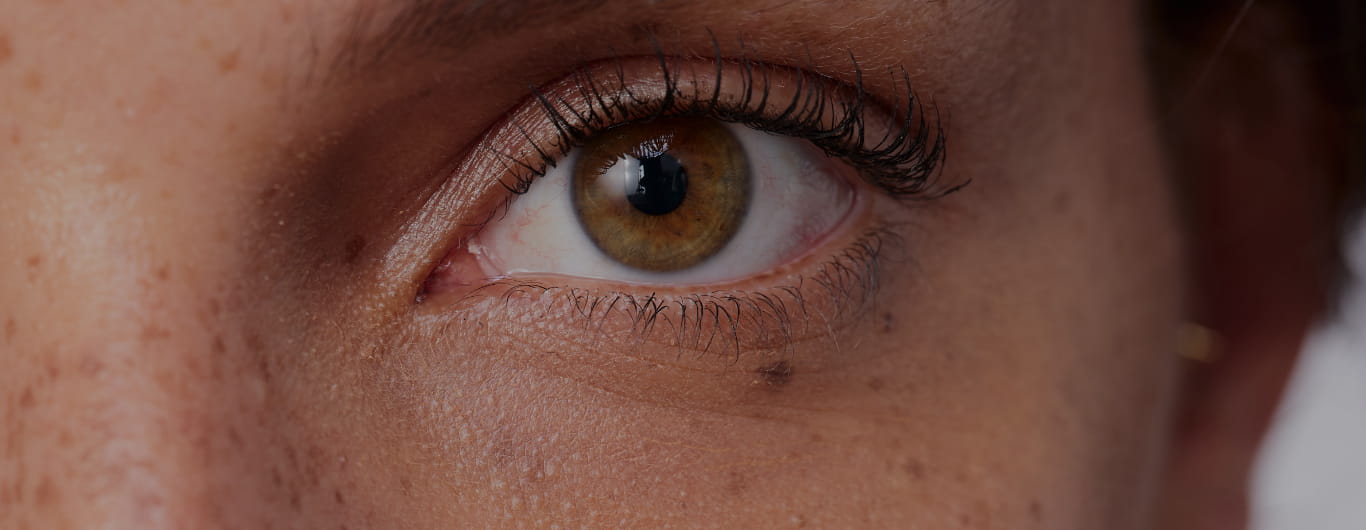Blemishes? Brown spots? Wrinkles? Pollution could be one of the causes. We asked dermatologist Dr. Nina Roos to explain how pollution can age the skin.
How does pollution harm skin?
Countless studies have shown that pollution can contribute to premature skin aging.[1] Research conducted by L'Oréal in Mexico and China showed a decrease in hydration and increased sebum production among participants overexposed to pollution, while pollution has also been shown to cause staining of the skin and brown spots, as well as being linked with ozone depletion - responsible for, among other things, causing skin cancer.[2]
Our lifestyle can have a significant impact on how pollution affects our skin
Dr. Nina Roos, dermatologist
As if pollution on its own wasn’t bad enough, it has a “double effect” when combined with UV rays.
When associated with exposure to sunshine, pollution damage transforms into what’s known as ‘photopollution’[3][4], triggering oxidative stress within the body and speeding up the aging process.
Dermatologist Dr. Nina Roos says: “Our lifestyle can have a significant impact on how pollution affects our skin. As well as UV rays, cigarette smoke can also cause this ‘double effect’, combining with pollution to damage skin.”
How can we help fight signs of pollution?
When it comes to UV-related or pollution-based damage, adapting your skincare and diet as part of a global approach can help improve the appearance of symptoms. Foods rich in antioxidants, such as red berries and leafy greens, will help stop free radicals - triggered by these environmental factors - from damaging skin cells.
More specifically, Nina recommends paying attention to your cleansing routine in order to fully remove dirt and impurities caused by a buildup of pollution - whether or not you wear makeup on a daily basis. For example, it’s important to wear SPF all year round to help protect skin from UV damage, which, as we’ve seen above, also worsens the impact of pollution on the skin. However, SPF formulas can still cling to skin unless properly removed with a cleansing lotion or gel, so make sure you’re thoroughly cleaning skin to remove all traces of sun protection, as well as toxins resulting from poor quality air.
Exfoliation can also help improve the appearance of blackheads and dark spots, as well as removing dead skin cells, which can give skin a tired or dull look. Vitamin C has also been shown to help reduce brown spots that occur as a result of exposure to pollution, so if your skin’s texture or uneven tone is one of your main concerns, try opting for an exfoliator enriched with vitamin C for brighter, smoother skin. Skin cures featuring vitamin C can also help tackle problems linked to brown spots or dullness, so it’s worth considering a targeted treatment like Vichy LiftActiv Antioxidant & Anti-Fatigue Fresh Shot to restore evenness and brightness to fatigued skin. [5]
Sources:
[1] A Vierkötter. ‘Environmental pollution and skin aging’ [original article in German] in Der Hautarzt; Zeitschrift für Dermatologie, Venerologie, und verwandte Gebiete 62.8 (2011) pp. 577-581. [Accessible at: https://www.ncbi.nlm.nih.gov/pubmed/21656109]
[2] Goldsmith, L.A ‘Skin effects of air pollution’ in Otolaryngology and head and neck surgery 114.2 (1996) pp. 217-219 [Accessible at: https://www.ncbi.nlm.nih.gov/pubmed/8637736]
[3] Pham, D.-M., B. Boussouira, D. Moyal, and Q.l. Nguyen. "Oxidization of squalene, a human skin lipid: a new and reliable marker of environmental pollution studies." International Journal of Cosmetic Science 37.4 (2015): 357-65. Web.
[4] Soeur, J., Belaïdi, J. P., Chollet, C., Denat, L., Dimitrov, A., Jones, C., ... & Erdmann, D. (2017). Photo-pollution stress in skin: Traces of pollutants (PAH and particulate matter) impair redox homeostasis in keratinocytes exposed to UVA1. Journal of Dermatological Science, 86(2), 162-169.
[5] Telang, P. ‘Vitamin C in Dermatology’ in Indian Dermatology Online Journal 4.2 (2013) pp. 143-146 [Accessible at: https://www.ncbi.nlm.nih.gov/pmc/articles/PMC3673383/]







